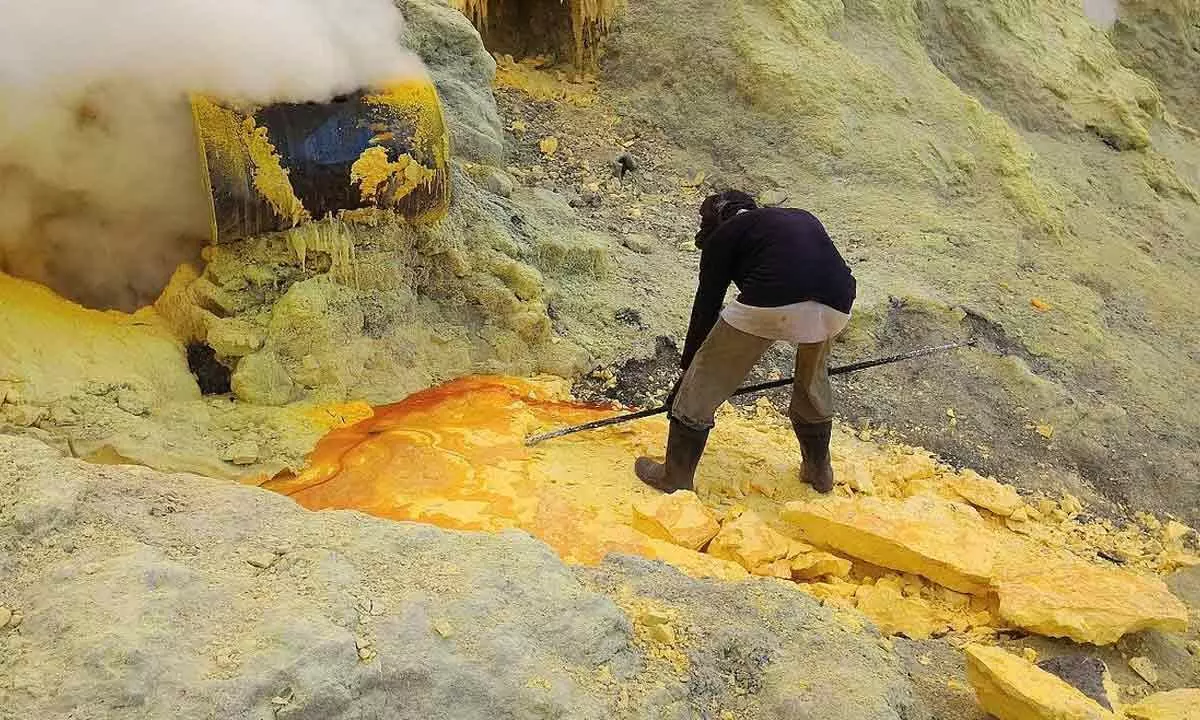Lithium key to EV push but mining poses serious environmental risks

Lithium key to EV push but mining poses serious environmental risks
The discovery of lithium in Jammu and Kashmir is significant for India’s push towards electric vehicles but any environmental gains could be negated if it is not mined carefully, say experts, citing risks such as air pollution and soil degradation in the fragile Himalayan region.
New Delhi: The discovery of lithium in Jammu and Kashmir is significant for India's push towards electric vehicles but any environmental gains could be negated if it is not mined carefully, say experts, citing risks such as air pollution and soil degradation in the fragile Himalayan region. The Geological Survey of India recently identified a potential deposit of 5.9 million tonnes of lithium in Reasi district's Salal-Haimana area, the first such anywhere in India, which imports lithium. GSI said the site is an "inferred resource" of the metal, which means it is at a preliminary exploration stage, the second of a four-step process.
The discovery of lithium deposits can be a potential "game changer" for the country's clean energy manufacturing ambitions in several ways, said Siddharth Goel, senior policy advisor at the International Institute for Sustainable Development (IISD). "First of all, the scale of the reserves is significant, and can -- if proven to be commercially viable -- reduce India's reliance on imports of lithium-ion cells, which are a key component for EV batteries and other clean energy technologies," he said. But there is a flip side too.
"Reports indicate that approximately 2.2 million litres of water are needed to produce one tonne of lithium. Further, mining in the unstable Himalayan terrain is fraught with risks," cautioned Saleem H. Ali, distinguished prVofessor of Energy and the Environment at the University of Delaware. Lithium mining in Chile, Argentina and Bolivia, for instance, has led to concerns over soil degradation, water shortages and contamination, air pollution and biodiversity loss. "This is because the mining process is extremely water-intensive, and also contaminates the landscape and the water supplies if not done in a sustainable method," Ali said.
According to the US Geological Survey (USGS), about a fourth of the Earth's known lithium deposits (88 million tonnes) would be economical to mine, said Charith Konda, energy analyst, Electricity Sector at at US-based Institute for Energy Economics and Financial Analysis (IEEFA).
"Applying this benchmark, India could probably economically extract 1.5 million tonnes of lithium from the 5.9 million tonnes discovered in preliminary studies," Konda told PTI. Economically here would mean that the resources and technology used to extract will give good return in terms of usage of the resource. "India has a vision of increasing the share of electric vehicle sales to 30 per cent in private cars, 70 per cent in commercial vehicles, 40 per cent in buses, and 80 per cent in two- and three-wheelers by 2030.
In absolute numbers, this could translate to 80 million EVs on Indian roads by 2030," Konda said. The battery pack of an average electric car, he explained, requires 8 kg of lithium. By this metric, India's economically extractable lithium reserves should be enough to power 184.4 million electric cars. Currently, India is import dependent for several elements such as lithium, nickel and cobalt. Ministry of Commerce data shows that India spent around Rs 26,000 crore importing lithium between 2018-2021. In 2021, preliminary surveys by Atomic Minerals Directorate for Exploration and Research (AMD) showed the presence of lithium resources of 1,600 tonnes in Mandya District in Karnataka.

